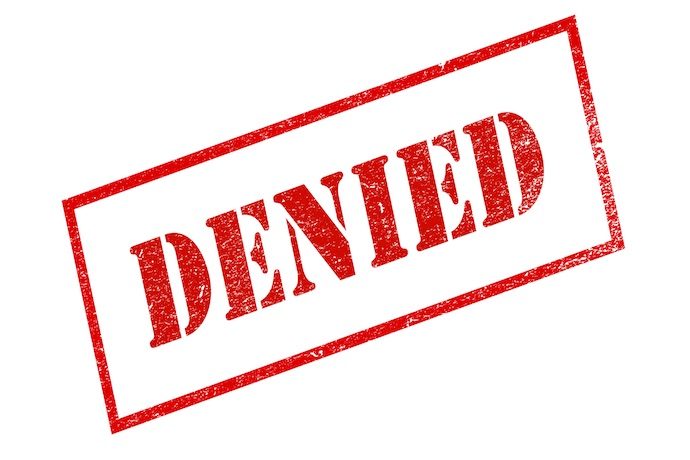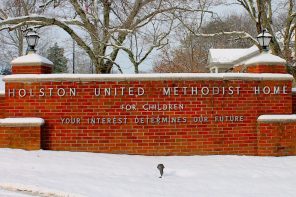Imagine a congregation—maybe even a whole denomination—that’s raising money from its members in order to establish a program to educate new ministers. Imagine, too, that this is a somewhat unusual congregation, one that believes that individuals with the same hair color should not marry each other. For that reason, it makes clear that, on religious grounds, it simply cannot accept members of same-hair-color couples into its new training program.
It’s unclear what would happen in such a far-fetched hypothetical, but there’s a reasonable claim to be made that so long as the congregation is using its own funds, its religious beliefs may control how it administers its programs. After all, longstanding precedents establish that religious organizations can hire and fire ministers for reasons that might not normally be permissible. Churches can apply their own tests for what it means to be a member in good standing, or where the threshold for excommunication lies. And religious organizations have considerable, although not unlimited, discretion about how they spend the donations they receive.
But now imagine that the congregation is not establishing a program internal to the church, and that it hasn’t raised its own funds. Rather, the congregation is seeking to place refugee children with foster parents and has received funds from the federal government, which through its Office of Refugee Resettlement contracts with private organizations (many of them religious) to arrange for adoption and foster care placements. Can the congregation continue to insist on its prohibition on same-hair-color couples if it receives federal funding—i.e. taxpayer money?
This is the question at issue in a lawsuit filed earlier this week by a married lesbian couple from Austin, Texas. Fatma Marouf and Bryn Esplin had expressed interest in becoming foster parents, but the local Catholic Charities organization turned them away, memorably telling them that prospective foster parents must “mirror the Holy Family.” (The women clarified that this was meant as a prohibition on same-sex parents, not a requirement that one parent be a carpenter well beyond the usual marrying age and the other an unwed pregnant virgin.)
In Texas, a state law adopted just last year permits adoption and foster care agencies to turn away prospective parents for sincerely held religious reasons. The women in this case, however, are suing in federal court, since the Catholic Charities program in question is funded through an arm of the Department of Health and Human Services.
The local Catholic diocese responded to the women’s lawsuit first by insisting that Catholic Charities of Fort Worth obeys all applicable laws, then offering an implicit threat. According to the Dallas Morning News, Fort Worth Bishop Michael Olson said that “It would be tragic if Catholic Charities were not able to provide this help, in accordance with the Gospel values and family, assistance that is so essential to these children who are vulnerable to being mistreated as meaningless in society.”
In other words: Catholic Charities might rather go out of business than operate in a world where it is unable to religiously restrict access to its placement services. Catholic Charities organizations in other regions have already discontinued their adoption and/or foster care services in similar cases.
As I argued recently, the contest over religious exemptions from general laws and regulations has become the front line in the ongoing struggle for LGBTQ equality. If Catholic Charities’ refugee program were funded only by contributions from parishioners and dioceses, then it might have at least a debatable claim along the lines of the bakers and wedding photographers who have been penalized under nondiscrimination laws. But in this instance, Catholic Charities is operating as a grantee of the federal government, and its eligibility for a religious exemption accordingly deserves greater scrutiny.
There are strong views on both sides. Catholic hospitals that receive government funds are permitted not to offer certain medical services, like abortions. Yet they are not permitted to turn away patients because they are not Catholic, or unwed mothers, or gay, or simply in disagreement with the church’s stance on a moral or theological issue. In between these two examples are any number of more ambiguous situations, where religious consciences and LGBTQ citizens’ access to equal treatment clash without easy resolution.
Which is why this week’s case is so important. At a moment where claims both for and against religious exemptions in the context of LGBTQ rights seem destined only to proliferate, we need a more coherent jurisprudence than that which courts have thus far offered. There simply isn’t sufficient judicial clarity about the extent to which people’s belief that same-sex marriage (or even LGBT identities) are sinful can serve as a legitimate reason to treat same-sex couples differently. A similar dynamic played out fifty years ago in the wake of court decisions and legislation designed to protect Americans of color. We often forget that claims about the religious basis of discriminatory beliefs and practices figured prominently there as well.
True, religious freedom may lose its meaning if government can tell religious organizations how to govern their own affairs. But when should religious freedom be allowed to justify behaviors that in other contexts would be illegal, not to mention simply offensive? Perhaps out of this next phase of our contentious national conversation about the equality of LGBTQ citizens, we may find ways of better living with a tension that is built into both the structure of our Constitution and the sharp divisions that remain among Americans when it comes to the subject of sexual diversity.





